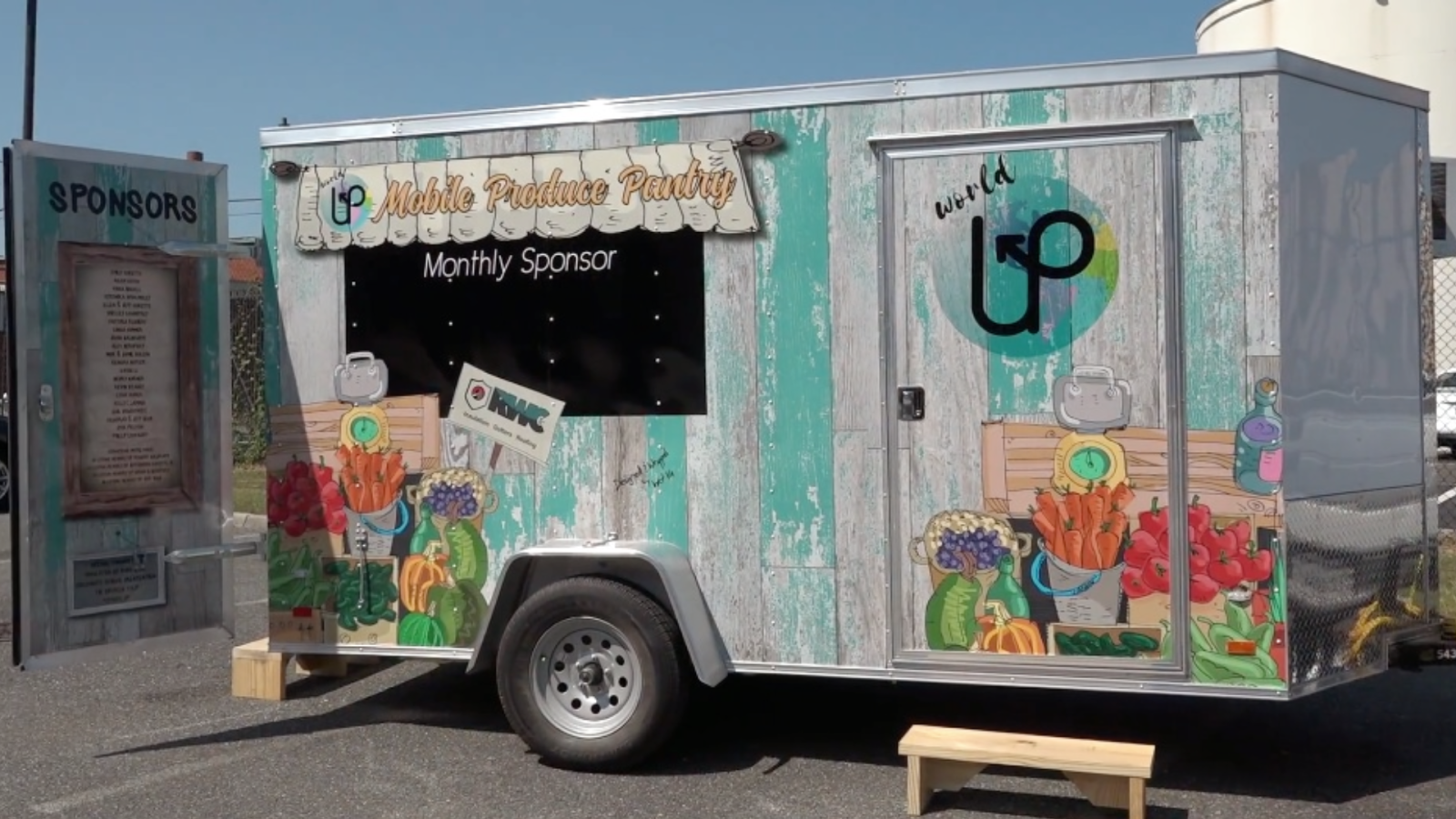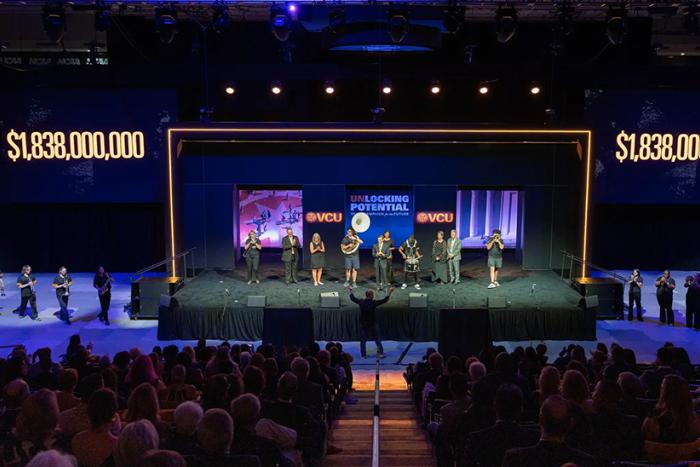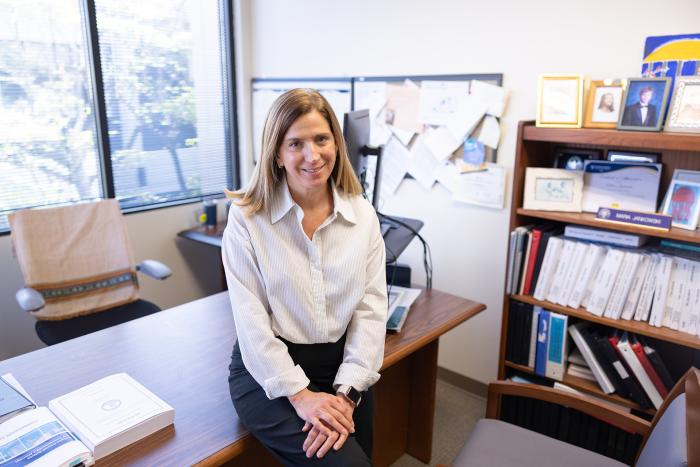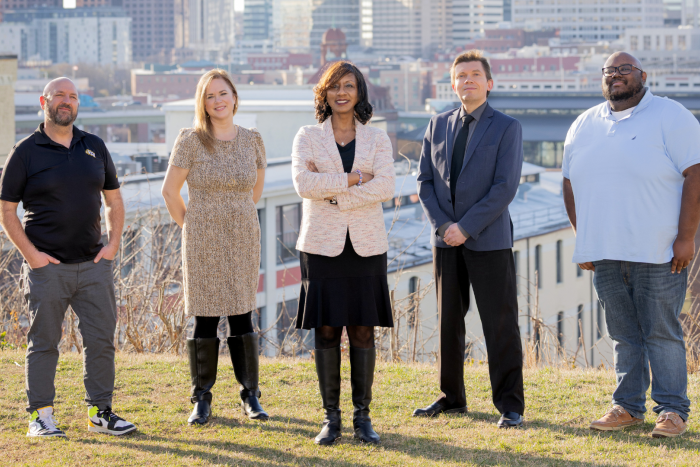
Thanks to a community grant from VCU Massey Cancer Center, the World U.P. Foundation was able to create a direct delivery system for their Mobile Food Pantry in Richmond. Photo: World U.P. Foundation
Fostering Community Collaboration with Health Equity Programs
This article is part of an ongoing series of stories highlighting VCU Health programs and initiatives aimed at addressing issues of access and equity in health care.

Addressing health equity means VCU Massey Cancer Center is putting the old bench-to-bedside mentality, well, to bed.
Massey continues to champion efforts to do more than just include historically marginalized communities in its outreach as a means of influencing cancer care and research for those populations.
It wants them to take the lead.
Forward-thinking community-to-bench models uproot traditional methods of patient care by relying on community input as the starting point. The goal is to create environments that foster long-term collaboration between community stakeholders, specifically local patients and those who care for them, and Massey’s cancer teams.
Among the ways Massey shows its community-to-bench commitment is through its Massey Cancer Center Community Grant Program, announced late last year. Following an application process, seven organizations within central Virginia and beyond each received $5,000 in February that they are using to jumpstart a variety of health equity initiatives.
Churches, foundations – even a free clinic – are using these resources to engage their respective communities on the topics of colon, breast, cervical and oral cancers, while providing opportunities for screenings and caregiver support.
Unlike programs that end when grant funding runs out, “this program is part of our efforts to reimagine a cancer center’s role in the community,” said Robert A. Winn, M.D., director and Lipman chair in Oncology at Massey and senior associate dean of Cancer Innovation at the VCU School of Medicine.
“We are providing resources to support each partner’s priorities and fostering organizational collaboration in the regions Massey serves.”
Four Richmond-area organizations received Massey community grants:
- The Virginia Breast Cancer Foundation created a resource coordinator position to offer informed referrals that complement the work of nurse navigators in areas of high incidence, mortality and/or health disparities.
- Fifth Baptist Church is hosting virtual workshops for anyone 15 and older throughout greater Richmond that illustrate the effects of smoking and secondhand smoke.
- Ebenezer Baptist Church has established the Ebenezer Cancer Caregivers Project to reduce emotional and mental health cancer burdens on caregivers by holding weekly support group and educational programs that span cancer care.
- World U.P. Foundation is working to alleviate those living in Richmond’s food deserts by creating a direct delivery system for its Mobile Produce Pantry.
Elsewhere:
- Petersburg’s Saving Pennies 4 A Cure/Trials of Color will establish the Teach One Reach One Project to educate the city’s underserved residents about the symptoms of colon cancer, as well as the benefits of screenings and prevention through promotion of healthy lifestyle changes.
- Kilmarnock’s Northern Neck-Middlesex Free Health Clinic has established a program called Are You At Risk, which provides information on oral cancer, Medicaid dental benefits, and a Dental Clinic brochure, as well as an appointment voucher for a free visit to the Dental Clinic and free oral cancer screenings.
- Danville’s Vance Street Missionary Baptist Church is using the grant to educate that community about cervical and colorectal cancer through a partnership with the Piedmont Access to Health Services, Inc., a nonprofit providing medical and dental care on a sliding payment scale.
In all, 14 organizations within Massey’s catchment area submitted applications for the community grants. That catchment area includes 66 contiguous localities in central, eastern and southern Virginia that are home to roughly 4 million people. Among them, 41% identify as racial/ethnic minorities and 52% identify as living in rural areas.


